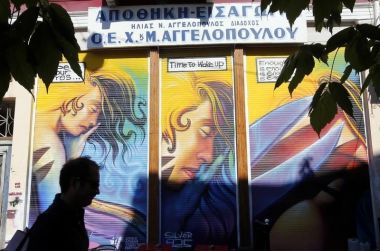What are Christians doing to help alleviate Greece financial mess? Caritas shows way

With Greece currently in the throes of financial and political woes, the Catholic non-profit organisation Caritas is doing its share to extend Christian charity by offering food and shelter to the country's growing number of poor and migrant residents.
"Here everything is blocked, everything is difficult. There isn't work, there isn't anything. Also Greeks are looking for work, everyone is. It's a very, very difficult situation," Caritas Greece director Father Andrea Voutsinos told the Catholic News Agency.
Greece's unemployment rate is at 25 percent. With the financial crisis still gripping the entire country, people are not allowed to withdraw more than $70 a day in ATMs.
That is why Caritas has stepped up its efforts to assist needy families and refugees coming from the Middle East. It created a new programme, called "Estia," which extends a helping hand to families who have nothing, said Voutsinos.
Caritas helps these families by providing them basic food needs and medical insurance, since people cannot be admitted in Greece's hospitals unless they have proof that they are able to pay.
"If they don't have any work, they can't bring anything home to live on. We are sending help daily," Voutsinos said, adding that Caritas helps shoulder the costs of their beneficiaries' electric, gas, and water bills.
Caritas Greece also runs a large daily soup kitchen where hundreds of needy people, including senior citizens, get daily sustenance. "There is great poverty, because the people don't have the possibility to buy what's necessary to eat," he said.
But Voutsinos said the growing number of poor people in Greece is "only half the organisation's concern," since there are over 90,000 refugees coming from Syria, Pakistan, and Afghanistan who have tried entering Greece this year, hoping to find a better life. Even though these migrants have managed to escape persecution and violence from their home country, they are greeted with poverty in Greece.
The refugees who come "are looking for a better world," Voutsinos said, "but when they enter it's not a better world they find."











